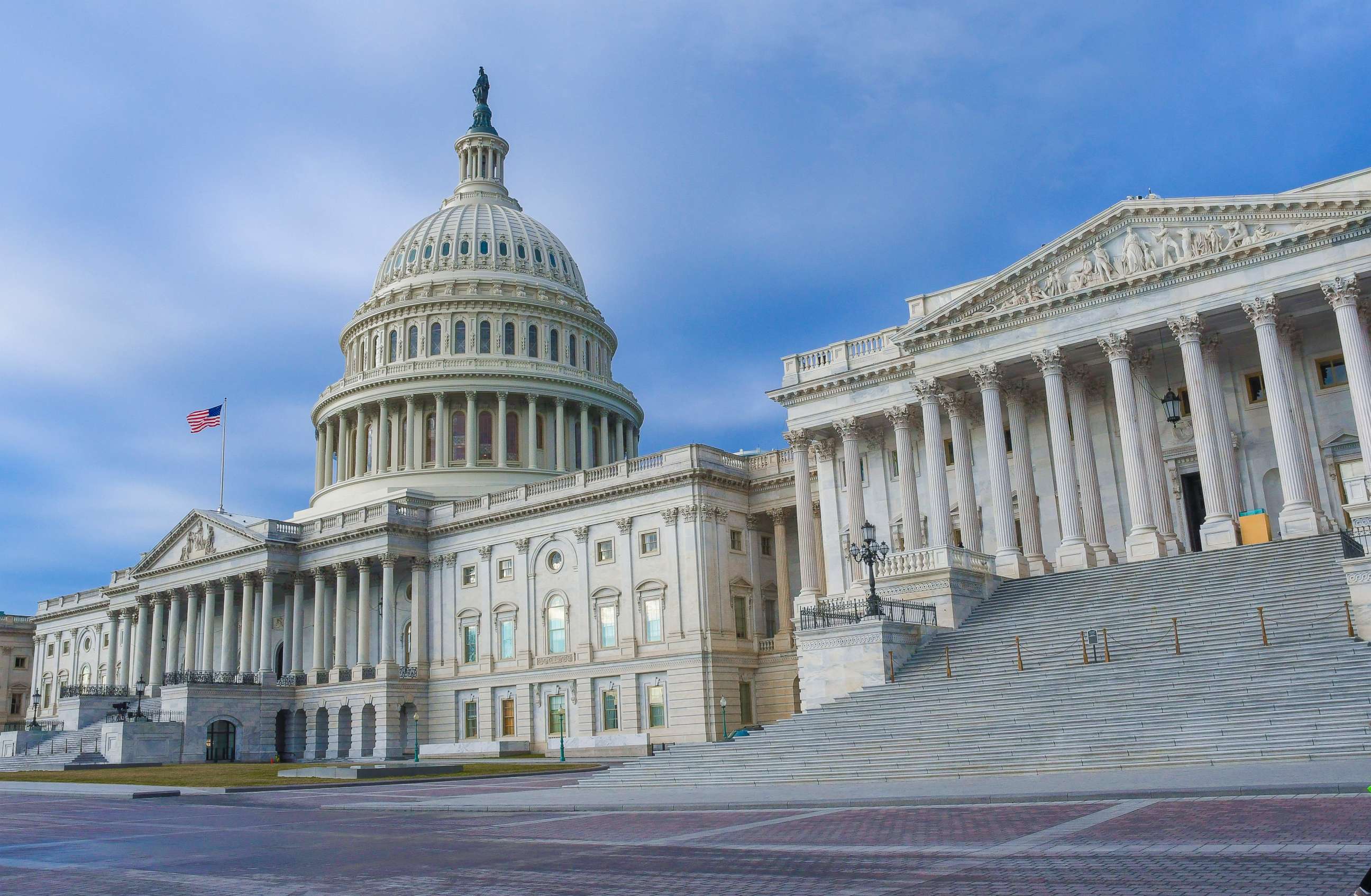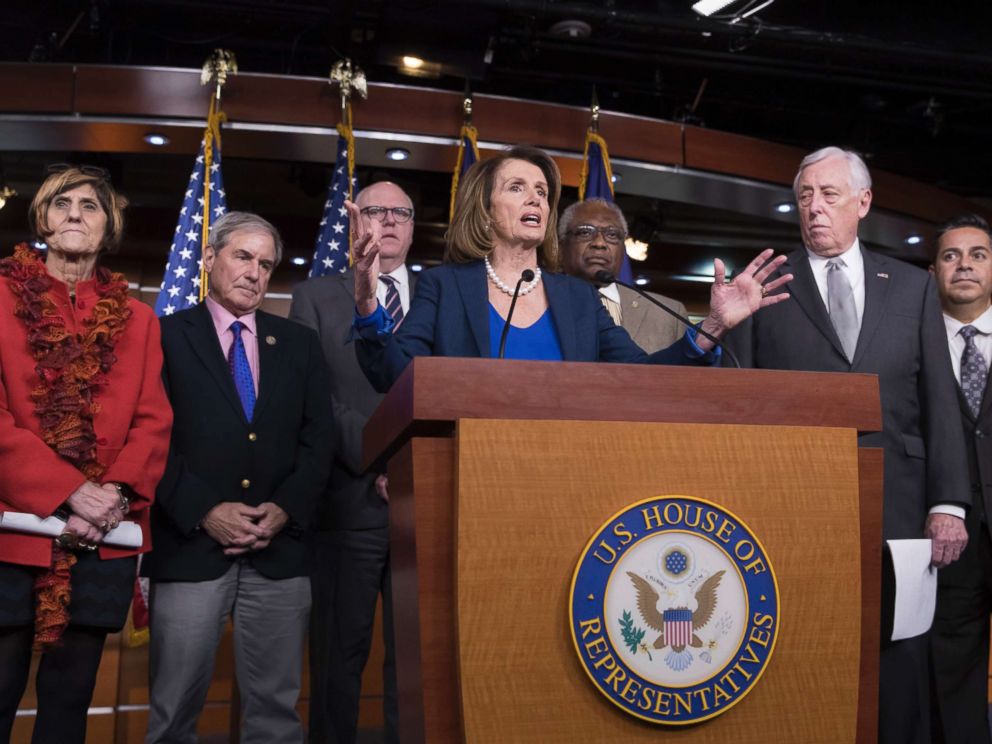Democrats, Republicans lead in their own strongholds: A key to midterm outcomes: Poll
Democrats' advantage in congressional vote preference is in districts they hold
— -- The wide Democratic advantage in congressional vote preference comes entirely in districts the party already holds, raising questions about the extent of its possible gains in November. Yet the closeness of the contests in GOP-held districts underscores this year’s Republican vulnerability.
Democrats lead by 14 points among likely voters in the latest ABC News/Washington Post poll, a result reported previously. But that reflects a vast 38-point Democratic lead in districts already held by Democratic members of Congress. In districts the Republican Party holds, by contrast, it’s a tight 45-51 percent Democratic vs. Republican contest.
See PDF for full results, charts and tables
The Democrats' lead in their districts, 64-26 percent, marks the extent of potential Democratic overvoting in areas where they’re already in control – which partly reflects a Democratic concentration in urban areas, and possibly also gerrymandering of district lines.
At the same time, the closeness of the races in Republican districts indicates Democratic pickup opportunities. And another result points to an enthusiasm gap in the Democrats’ favor: They lead very widely among those who say it’s especially important to vote this year.
Political independents – often swing voters, given their weaker party loyalty – drive the results of this poll, produced for ABC by Langer Research Associates. In Democratic districts independents favor the Democrat; in Republican districts independents split evenly, 45-46 percent. Partisans on both sides, by contrast, stick nearly unanimously with their party.

Overall, the poll finds that 77 percent of Republicans live in one of the 238 GOP-held congressional districts, while a smaller majority of Democrats live in a district held by their party, 52 percent. Independents are split 50-50 between Democratic and Republican districts. Half the people in Democratic-held districts live in urban areas, vs. a third of those in GOP districts.
Urgency
Democrats, as noted, have urgency on their side. Half of likely voters say voting this year is more important to them than in previous midterm elections – and they split by a wide 65-29 percent for the Democrat over the Republican in their districts.
Among those who say voting this year is no more important than in the past, it’s a closer 42-51 percent contest. And within the parties, Democrats are much more likely than Republicans to say voting is more important this year, 64 vs. 40 percent.
That said, enthusiasm won’t necessarily flip seats – there’s little difference in “more important” ratings between those who live in Democratic districts vs. Republican ones, 53 vs. 49 percent, suggesting some amount of this energy will end up boosting incumbents rather than forcing turnover. And there’s no guarantee that current fervor won’t flag in the nine months ahead; Democrats, in particular, often lag in midterm turnout.
Newcomers?
Democrats stand out in another measure as well, on whether one would prefer to elect a representative who is new to politics or has political experience. Democratic likely voters heavily favor experience, 72-20 percent, while the question divides Republicans and independents, 39-41 percent and 45-41 percent, respectively. (Twenty percent of GOP partisans and 14 percent of independents have no opinion, compared with 8 percent of Democrats.)

That said, by expressing a preference for experienced politicians, Democrats seem to be signaling antipathy toward political newcomer Donald Trump rather than thinking about their local congressional races. In statistical analysis, disapproving of Trump strongly predicts preferring someone new to politics, even after holding demographics and party control of one’s district constant. As such, the result may be less of a challenge than it seems in regards to Democratic efforts to find fresh-faced challengers to GOP incumbents.
Methodology
This ABC News/Washington Post poll was conducted by landline and cellular telephone Jan. 15-18, 2018, in English and Spanish, among a random national sample of 1,005 adults and 846 registered voters. Results have a margin of sampling error of 3.5 points, including the design effect. Partisan divisions are 31-23-40 percent, Democrats-Republicans-independents.
The survey was produced for ABC News by Langer Research Associates of New York, N.Y., with sampling, data collection and tabulation by Abt Associates of Cambridge, Massachusetts. See details on the survey’s methodology here.
18 For 18’ is ABC News’ powerhouse political coverage of the 2018 midterm elections. Coverage kicks off Sunday on “This Week with George Stephanopoulos,” featuring a report on the 2018 midterms and the special House of Representatives election taking place next month in Pennsylvania. Coverage continues on “Nightline” on Monday. To stay up to date, visit ABCNews.com and the ABC News app, and follow our midterm elections alerts.